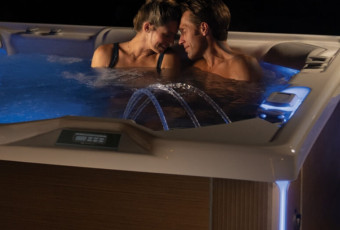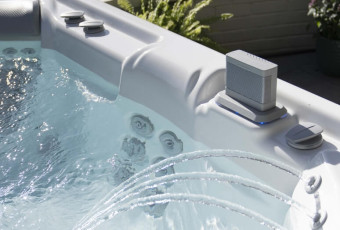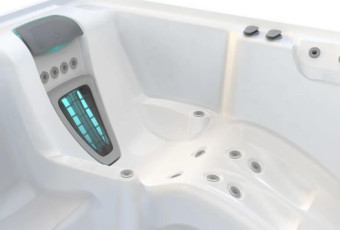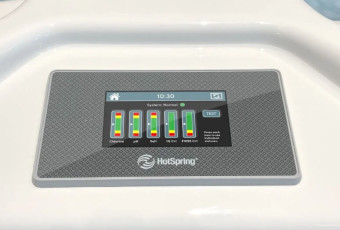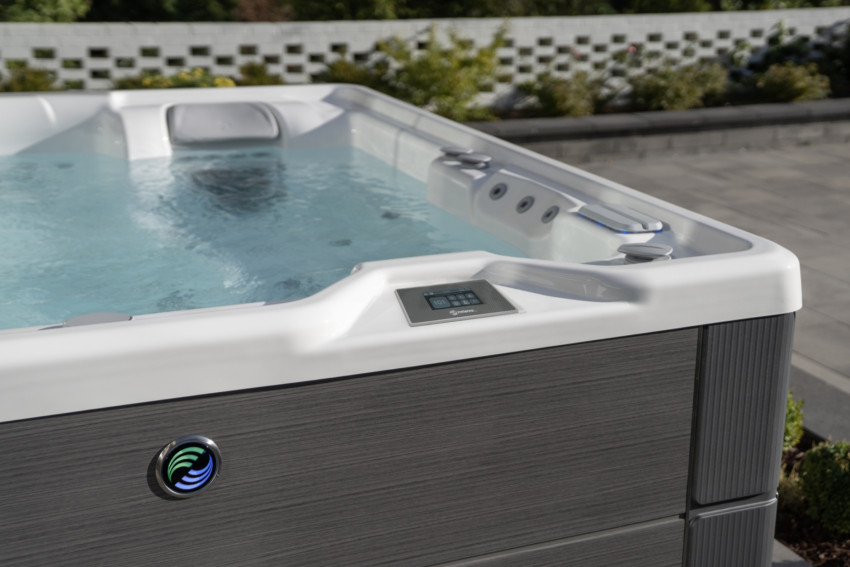Can a spa pool reduce inflammation?
Spa pools are renowned for their health and wellness properties. This tranquil escape from our busy modern lives can result in a number of mental health benefits, while hydrotherapy has become a key tool in a modern physio and occupational therapist’s toolkit. But could a spa pool help those who suffer from swelling and inflammation, whether a result of an injury, disease or chronic condition?
As it turns out, a backyard spa pool can indeed form an effective treatment for inflammation. The warm waters of a hot tub elicit a physiological response from the body in much the same way exercise does, but without the physical stresses and impacts that come with a workout.
How exactly does a spa pool help to fight inflammation? And how can a sufferer get the best possible results from their backyard tub? In this article we’ll look at the evidence at hand, and how you might use this knowledge to your advantage.
Do hot tubs promote healing?
From the Ancient Greeks to the Romans, a wealth of civilisations have found health and wellness in warm and bubbling waters, whether in manmade spas or natural springs. And while these cultures came to these conclusions based on largely anecdotal evidence, modern science has since shown spa pools to be an effective treatment for a wealth of health issues, as well as exactly how these machines help the body heal itself.
When you immerse yourself in hot water, a number of things happen at a physiological level. The immersive heat causes your blood vessels to expand. Your heart begins to pump more blood. Your seated or prone posture ensures your circulatory system doesn’t have to fight against gravity. And all this results in a greater supply of oxygen and nutrient-rich blood to your soft tissues and vital organs, which can promote healing.

Does soaking in hot water reduce swelling?
The key ingredient in a Hot Spring spa pool is its water. Able to be precisely set to your preferred temperature, down to a fraction of a degree, Hot Spring owners enjoy the ultimate control over their soaking experience. And this is a particularly handy feature for anyone who has issues with inflammation and swelling, as carefully controlled balneotherapy (hot water immersion) has been shown to result in reduced inflammation.
We’re taught from a young age that the best way to deal with temporary swelling is the ICE method: ice, compression, elevation. If cooling down a bruised area is key to helping it heal, it can feel a bit counterintuitive to hear that hot water might help reduce long-term inflammation. But science has proved exactly that.
In this 2018 study, which focused on a group of overweight and mostly sedentary men, hot water immersion was found to have much the same effect as exercise in terms of inflammation. When the patients first submerged themselves, the researchers noted a very brief inflammatory response – the result of what they termed a ‘physical stressor’ or change in the environment to which the body reacts – but then, as the patients got used to the water, there followed an extended anti-inflammatory response.
This can be put down in part to hydrostatic pressure – when you immerse yourself in spa pool water it exerts the same uniform pressure on your body as it does on a diving submarine, which results in built up fluid being essentially squeezed out of the affected areas, made easier by the widening of the blood vessels mentioned above.
How do hot tubs reduce swelling?
On top of the effects of warm water immersion, Hot Spring spa pools have an extra anti-inflammatory weapon in their arsenal: soothing hydromassage jets.
While it should be noted that massage doesn’t actively reduce inflammation, many sufferers find that gentle massage offers temporary relief for the more painful symptoms associated with inflammation and swelling. And in a Hot Spring spa pool, you have some of the most innovative, customisable and therapeutic hydromassage technology on the market.
A suite of expertly designed and strategically placed jets can be found within every Hot Spring spa pool. The headline act is the Moto-Massage®, the world’s first moving spa pool jet that has been designed to work up and down the back, sweeping away pain and tension all the while.
Are hot tubs good for diabetics?
Most diabetics will be all too familiar with the pain of inflammation. Not only is swelling a common symptom of the disease, it can also form a cause: inflammation reduces a cell’s ability to respond to insulin, which means it can potentially contribute to the development of diabetes.
The good news is that a Hot Spring spa pool is capable of assisting with the pain of swelling and inflammation that is all too common in diabetics. With its warm waters working to keep inflammation to a minimum, it could be that Hot Spring spa pools play a part in helping non-diabetics reduce their likelihood of developing type II diabetes.

How long should you stay in a spa pool to aid recovery?
People who have made an investment in a backyard spa pool often don’t need much encouragement to enjoy a soak, and the bubbling warmth of the healing waters makes it all too easy to while away hours in your Hot Spring. But what is the ideal frequency and length of soaking time to ensure you enjoy the greatest possible benefit from your spa?
The first thing to note is that every body is different, and what works for one can be very different to what works for another. Second is a point we raised earlier – when you submerge yourself in warm water, the body first delivers an inflammatory response that then turns into an anti-inflammatory response. This means that by taking a quick dip, you risk increasing inflammation.
At Hot Spring Spas we like to recommend a daily soak of 15 minutes for those looking to capitalise on their spa pool’s health and wellness benefits, though your GP will be best placed to guide you on your best course of action.

